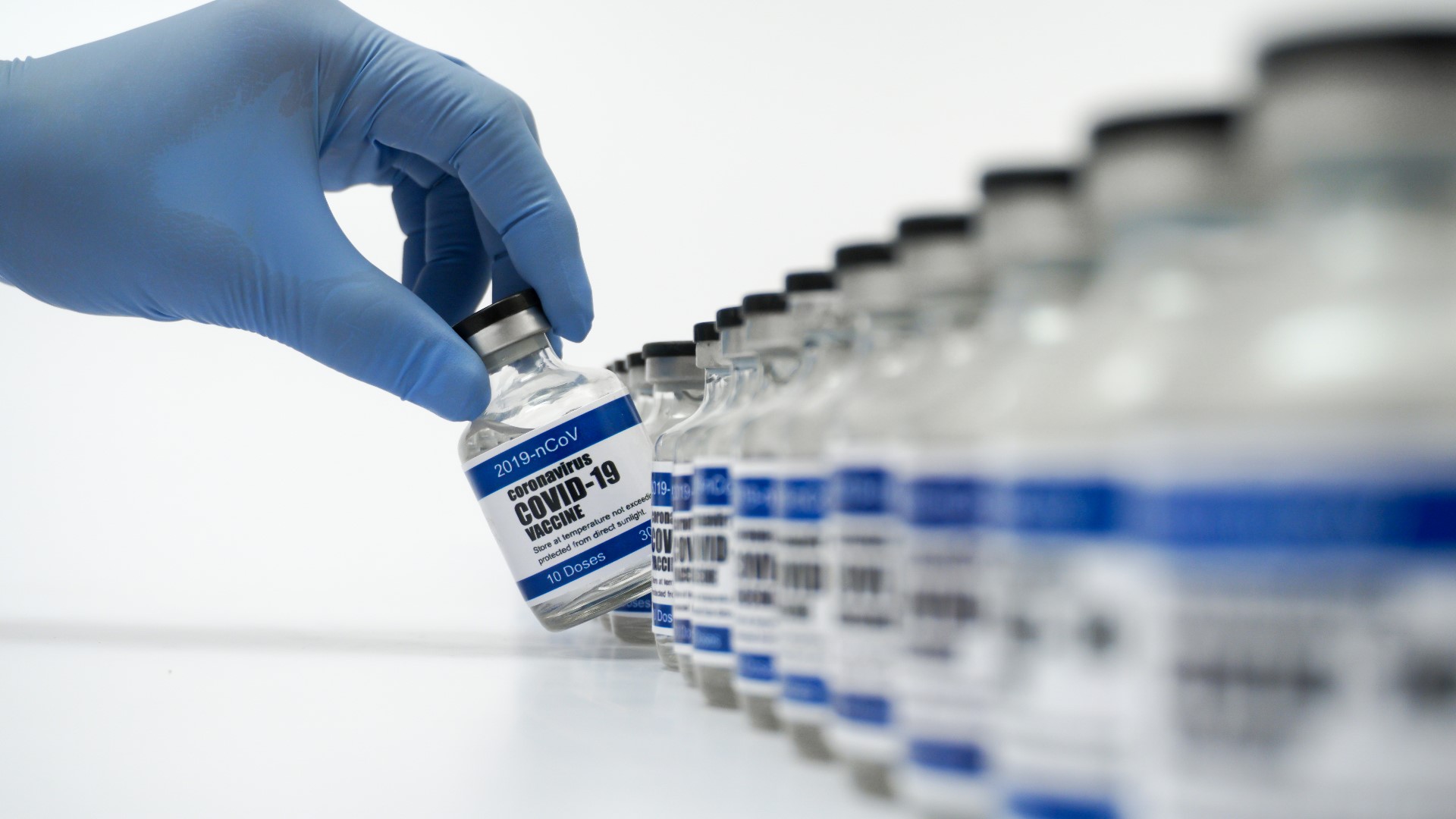SACRAMENTO, Calif. — The first round of the Pfizer COVID-19 vaccine, which is more than 90% effective, is planned to be shipped to UC Davis Health in Sacramento as early as Monday, Dec. 14, UC Davis Health said in a press release.
It is not known how much of the vaccine will be delivered in this first round, or when it will arrive at the hospital, but UC Davis Health said that some of the first people who will receive the vaccine in the state will be UC Davis Medical Center employees who have been working on the front lines.
UC Davis Health is one of at least seven California hospitals receiving a vaccine shipment.
"That freezer back there is -80 [degrees], which is super cold. A typical freezer is -20, -15," Chad Hatfield, Chief Pharmacy Officer UC Davis Health said.
UC Davis Health is one of seven California hospitals chosen to receive the state's first shipment. With two more specialty freezers on the way, UC Davis can store around 400,000 vaccines at a time.
San Joaquin County is also getting an influx of vaccines for first responders as well. In an interview with ABC10, the county’s public health officer Dr. Maggie Park said that officials are expecting 4,875 doses of Pfizer's vaccine on Monday or Tuesday, and then expecting roughly 6,000 more doses of Moderna's vaccine once it is approved by the FDA.
"It's not that we are requesting the amounts and the state is approving, the state is allocating to us what they feel we deserve to get as a county," Dr. Park said.
Since this is still Phase 1A of vaccine distribution and there are a limited number of doses, Dr. Park said healthcare workers will be getting the first vaccines. The number of doses a county gets for this first round depends on how many healthcare workers the area has to vaccinate.
"All the details are getting worked out very quickly," Dr. Park said. "This is a very quickly-moving issue. I do believe that there are people in the general public who will be in that first phase one."
Dr. Park said essential workers in critical infrastructure could see vaccines as early as January or February. She added that as time goes by, California health officials will know more about the exact timeline of bringing the vaccine to the general public. Some prioritized groups that Dr. Park said could be part of critical infrastructure vaccinations could include teachers and agricultural workers.
UC Davis Health said it has been planning how exactly to distribute the vaccine for several weeks, taking into consideration those who are most at risk of contracting COVID-19.
"In the emergency department, for example, custodial workers, physicians, nurses, first responders, and clerks are among the job classifications included in the top tier for vaccination priority," UC Davis Health said in the press release. "We are prepared to inoculate up to 400 employees per day, depending on the availability of supplies and other factors."
Dr Vanessa Walker is among the first in line to receive the vaccine in Sacramento County, as an ICU critical care specialist. She said she has full trust in the scientific minds that developed the vaccine in record time.
"It's not that this was quickly brought to market and is unsafe. No, it was the entire world working towards one solution,” Dr. Walker said.
Both the Pfizer and Moderna vaccines require second doses to be effective. Pfizer's vaccine requires a second dose 21 days after the first inoculation, and Moderna's vaccine requires the second dose 28 days later. The vaccine's effects only kick in after that second dose. Research is still ongoing as to how this process works and the amount of time a person who has been vaccinated will remain immune to COVID-19.



















